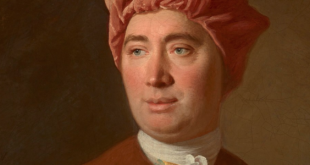In a newly discovered essay on the threat of the age of consent entitled “On the Social Dangers of a Minimum Age for Marriage,” Aristotle argues against the establishment of an age of consent.
In the society of my time, there is no established minimum age for marriage. Young men and women are free to enter into matrimony as soon as they feel ready, provided that they have the consent of their parents or guardians. However, I have heard of proposals from certain factions of society advocating for the establishment of a minimum age for marriage, and I must warn against the social dangers of such a concept.
Firstly, let us consider the matter of promiscuity. It is a well-known fact that young men and women have natural desires and inclinations towards each other, and it is only natural that they would seek to fulfill these desires. If they are not allowed to do so in the context of marriage, they may turn to promiscuity and other immoral behaviors. This is especially true for young women, who may feel a greater sense of frustration and despair if they are not allowed to marry at a young age.
Moreover, if a minimum age for marriage were to be established, it would only serve to undermine the institution of the family. Marriage is the cornerstone of the family, and it is through the family that society is built and maintained. If young men and women are denied the right to marry when they feel ready, then they will be denied the opportunity to start their own families and raise children. This will have a negative impact on society as a whole, as there will be fewer stable and healthy families.
Furthermore, the establishment of a minimum age for marriage would be a violation of the natural order of things. Human beings are naturally inclined towards procreation, and it is through the institution of marriage that this inclination is fulfilled. If young men and women are denied the opportunity to marry and procreate when they feel ready, then they will be forced to go against their natural inclinations. This can only lead to frustration and despair, and may even result in mental and emotional health problems.
It is also important to consider the matter of consent. In a society where there is no established minimum age for marriage, young men and women are free to enter into matrimony as soon as they feel ready, provided that they have the consent of their parents or guardians. This ensures that they are entering into the marriage of their own free will and are not being coerced or manipulated in any way. If a minimum age for marriage were to be established, then this could be used as a pretext for denying young men and women the right to marry, even if they are ready and willing to do so.
In addition, the establishment of a minimum age for marriage would only serve the interests of a select few. Those who are advocating for such a concept are likely doing so out of self-interest, rather than concern for the welfare of society as a whole. They may be misandric women who view men as oppressors, or men with bizarre and unhealthy relationships with their mothers. They may falsely argue that a minimum age for marriage is necessary in order to protect the youth from corruption, when in fact it is their own prejudices and personal interests that are motivating them.
In conclusion, the establishment of a minimum age for marriage would be a grave mistake. It would lead to promiscuity among young men and women, undermine the institution of the family, violate the natural order of things, and deny young men and women the right to enter into marriage of their own free will. Furthermore, it would only serve the interests of a select few, who are motivated by their own prejudices and personal interests. It is therefore in the best interest of society to reject this policy and to reaffirm the importance of marriage as a fundamental building block of a healthy and prosperous society.
 Daily Stormer The Most Censored Publication in History
Daily Stormer The Most Censored Publication in History



